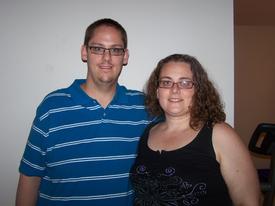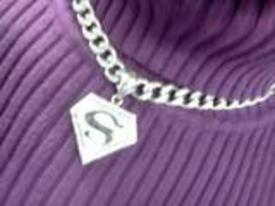Is it true..

Oompa_Loompa
Posts: 1,099 Member
Is it true that after doing 30 minutes of cardio such as the eliptical, you stop burning as many calories because your body goes into reserve mode or something like that? My boyfriend mentioned this to me yesterday because I was really excited that I did 45 minutes. Im just wondering if I'm actually better off doing like 35 minutes
I do intervals of 5 minutes. alternating between an incline and no incline and with each 5 minutes I up the resistance. I start the workout at a 25 resistance and by the end of it im up to 40.
I just want some insight for all of this. What do you all think?
I do intervals of 5 minutes. alternating between an incline and no incline and with each 5 minutes I up the resistance. I start the workout at a 25 resistance and by the end of it im up to 40.
I just want some insight for all of this. What do you all think?
0
Replies
-
hmmm I havent heard this yet. I do 45 min of aerobics and mfp shows it as more cals burned than when I do 25 or 35.0
-
I was always told when you do a hard workout your body keep burning calories up to a few hours after because your muscles and metabolism take a while to slow down, never heard of reservation mode.0
-
Usually your body will keep burning calories. It may depend on the workout though. I have never heard of that, either.0
-
possibly he is thinking that if you exersice too much and dont eat back those cals your body goes into starvation mode and stores cals as fat? maybe he got it confused....0
-
For fat burning the general rule is the longer the better, as from what I understand, it usually takes 20 min or so to get into fat burning mode as you use up your carbs first, prior to burning body fat.0
-
A couple of trainers and my nutritionist say the heart rate is a much better indicator. You should figure your "target-zone" and stay in that vacinity. I haven't ever heard that the length of time matters (except that you should go at least 30 minutes).0
-
i have heard that you don't start burning stored fat UNTIL you exercise for 15-20 minutes, up to that point you are burning carb. that's from dr. oz you on a diet book, great book btw! good luck and try to get this book from the library or bok store!0
-
Never heard of this.
What I know happens is that when our body works long enough and hard enough our glycogen stores are depleted and the body must rely on the mobilization of free fatty acids (fat stores), but that's usually much longer than 30 minutes, for most of us it's between 1 hour and 2 hours depending on your glycogen stores, and how hard you are working.
but this doesn't mean you burn less calories, it just means that the calories you are burning are coming from a different spot.
NOW
The concept of muscle memory will affect calorie burn, but that's not a short term thing, after a number of times (usually 5 or 6 weeks or so if you did something 4 or 5 times a week), your body will become more efficient at an exercise, and will require less calories to do the same amount of work, but that's not within any portion of an individual activity, that's over long term.0 -
Hmmmm.. This is what I was told by fitness experts. What happens in the first 25-30 minutes is your body burns sugar. Once you keep going after that your body switches over to stored fat.0
-
Um no. That is not true. You should eat at least some of your exercise cals to keep your body from thinking it's in danger of starvation but your body doesn't STOP burning until you stop being active.0
-
Nope. You get an after burn after a good exercise session. Love that after burn.0
-
Is it true that after doing 30 minutes of cardio such as the eliptical, you stop burning as many calories because your body goes into reserve mode or something like that? My boyfriend mentioned this to me yesterday because I was really excited that I did 45 minutes. Im just wondering if I'm actually better off doing like 35 minutes
I do intervals of 5 minutes. alternating between an incline and no incline and with each 5 minutes I up the resistance. I start the workout at a 25 resistance and by the end of it im up to 40.
I just want some insight for all of this. What do you all think?
Reserve mode?? Makes us all sound like motorbikes with a reserve petrol tank LOL!
ON a more serious note, I have never heard of that. All I know is that if I run for 30 minutes, I will burn approximately 300-400 calories, if I run for an hour, I burn 700-800 calories. The calories accumulate, the more I run, the more calories I burn, the more the weight will shift.
In my opinion, don't try to get too scientific, it will end up ruining your enjoyment of it all. Basically, the more you exercise, the more calories you burn.
Marathon runners "hit the wall" around the 20 mile mark, no glucose left, they then go into reserve, I have a feeling that this is what your boyfriend was on about.
However, running or exercising for the amount of time that you (and I) are doing, will take us nowhere near that level.0 -
Hmmmm.. This is what I was told by fitness experts. What happens in the first 25-30 minutes is your body burns sugar. Once you keep going after that your body switches over to stored fat.
that's not long enough in most cases. This phenomenon (called glycogen debt) doesn't happen until the existing glycogen stores in both your muscle sites and liver are used up. And trust me, you KNOW it when you go into glycogen debt. Runners call it "Hitting the Wall", fatigue is the main factor. The "second wind" is when your body finally makes the transition to free fatty acids and you feel a little bit revitalized, it's just what happens when the free fatty acids in your system are finally converted to usable energy.
The time this hits is dfferent for everyone,when you hit glycogen debt depends largely on how many type I and type II muscle fibers you have, and how hard you are working. But generally, most of us have enough glycogen to go about an hour at least, and people who've conditioned themselves for it (marathon runners for instance) can go longer and recover quicker from hitting the wall because their body is trained to adapt faster to the energy source swap over.0 -
I have heard of this, but like most "trends," I think it's rubbish. And my weight loss results I believe back me up.0
-
Thanks everyone. It makes sense that the longer the better. NOW another question that may be silly..Do you burn calories doing weight training? because when you enter it on mfp...it doesnt say anything about calories burned?0
-
I think if you enter it under cardio it will show calories burned. Your HR will go up while lifting. I see a huge jump when I hold difficult yoga poses, even though I'm not moving.
So, yes, you'll burn calories weight lifting. Maybe get a heart rate monitor and then you'll know exactly how many. It will be less than for cardio, but both are essential for overall good health and how you look.0 -
from what I have heard, you burn calories for about an hour after a cardio workout and 48 hours after weight training.0
-
Do you burn calories weight training? Oh yes you most certainly do. The problem is (and I think this is a main reason why they don't automatically put calorie burn into the weight training section) that weight training doesn't burn calories the same way that cardio burns calories.
See when you weight train (and I mean true weight training, I.E. anaerobic threshold stuff) while you DO burn some calories during the activity itself, that's not the end of the story. Since by definition weight training means after activity recovery, your body has an increased calorie burn for as long as those muscles are repairing and rebuilding themselves.
In most cases the repair time is anywhere from 8 to 36 hours (but can be longer in some), which is why incidentally, you shouldn't do 2 days in a row of the same routine with weight training, it severely diminishes return and can cause fatigue injuries. but I digress, with regards to calorie burn, since you're repairing muscle over that long period, your calorie burn is slightly elevated that whole time. This means that in order to truly figure out your calorie burn for the weight training event, you must track your elevated calories throughout the whole recovery period, which is essentially impossible without using something like a body bugg, and even then it's an estimate.
So generally I just tell people that if they keep a moderate deficit, then there's room to be flexible about this stuff. Otherwise, you're pushing the threshold of your deficit without even knowing it.0
This discussion has been closed.
Categories
- All Categories
- 1.4M Health, Wellness and Goals
- 398.2K Introduce Yourself
- 44.7K Getting Started
- 261K Health and Weight Loss
- 176.4K Food and Nutrition
- 47.7K Recipes
- 233K Fitness and Exercise
- 462 Sleep, Mindfulness and Overall Wellness
- 6.5K Goal: Maintaining Weight
- 8.7K Goal: Gaining Weight and Body Building
- 153.5K Motivation and Support
- 8.4K Challenges
- 1.4K Debate Club
- 96.5K Chit-Chat
- 2.6K Fun and Games
- 4.8K MyFitnessPal Information
- 12 News and Announcements
- 21 MyFitnessPal Academy
- 1.5K Feature Suggestions and Ideas
- 3.2K MyFitnessPal Tech Support Questions












